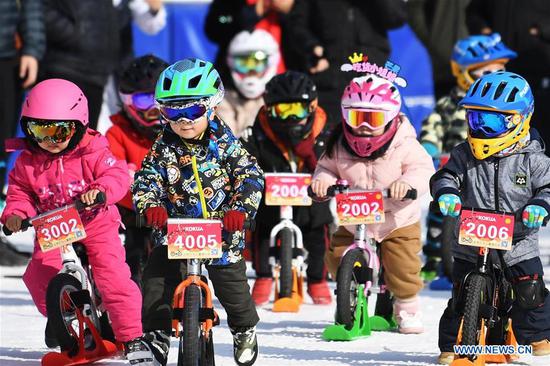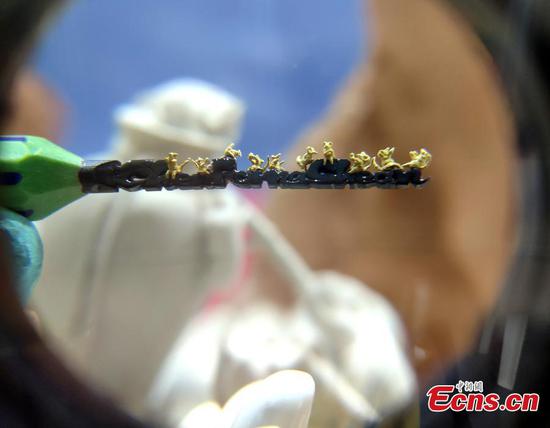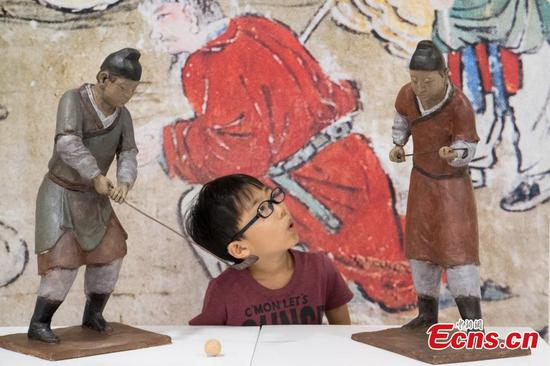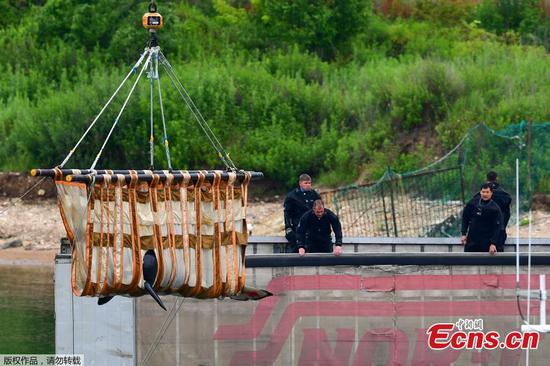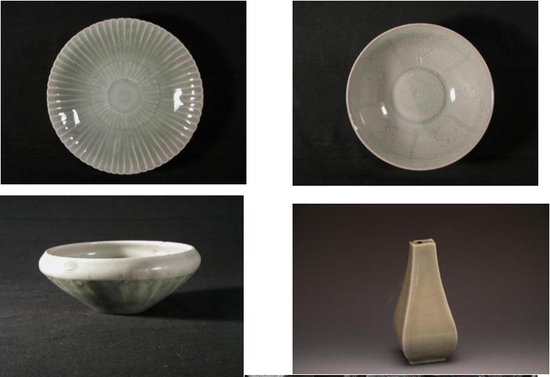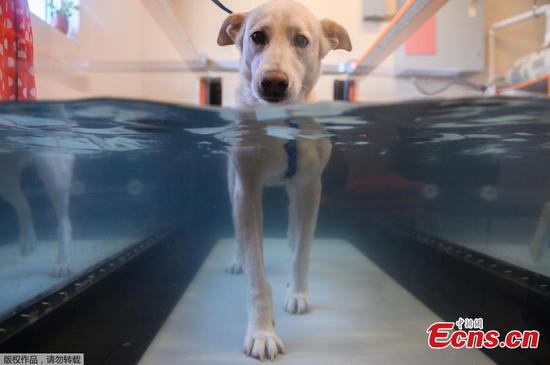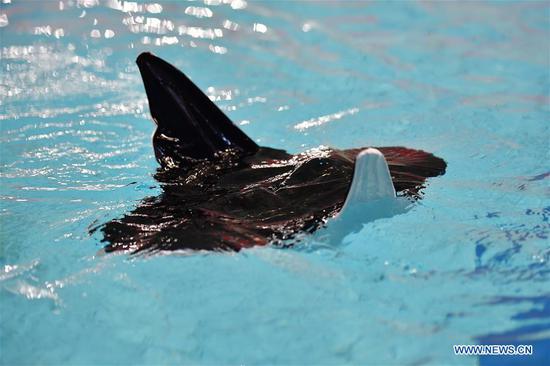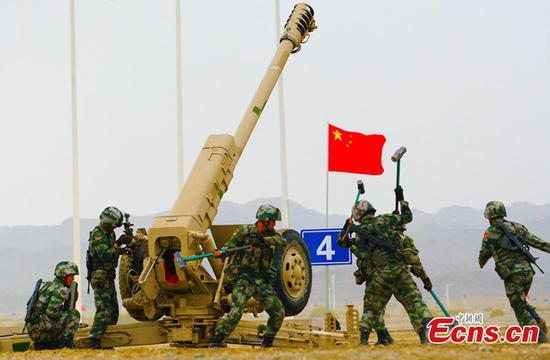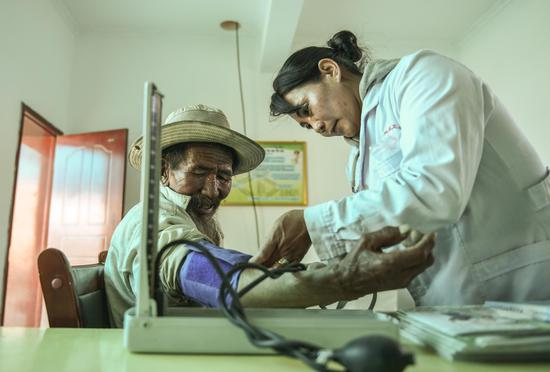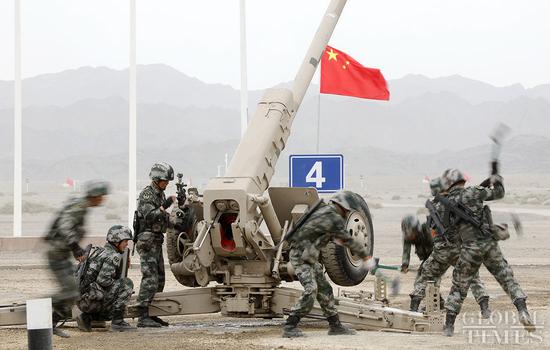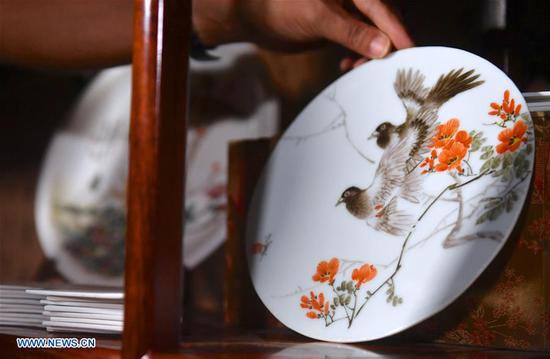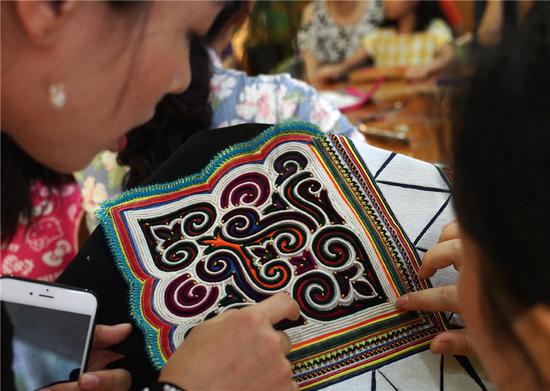Chinese actress Xu Jinglei's revelation in 2015 that she had frozen some of her eggs in the U.S. in 2013 – when she was 39 and still single – to retain the prospect of having a child in the future stirred a heated debate on the pros and cons of such an act, particularly for single women.
In China, assisted reproductive technology (ART) is accessible only to married women and therefore an increasing number of single women are opting for oocyte cryopreservation (popularly known as freezing eggs) in the U.S. as they defer the decision to have a family until they have established their careers, according to recent reports.
Ironically, studies suggest American women are freezing eggs too, but a large majority of them are doing so due to the "lack of stable" partners.
Meanwhile, China's leading travel service firm Ctrip, co-founded by demographer Liang Jianzhang, has introduced an assistance program to aid its female employees who would want to avail the egg freezing facilities in the U.S.
Citing the incident about a Ctrip employee who went for the ART procedure during the National Day holiday, the cost of which was borne by the company, China Daily last week reported that since summer the firm has put in place financial support ranging from 100,000 yuan (14,400 U.S. dollars) to 2 million yuan along with seven-days' paid leave for its middle- to senior-level female managers for the purpose.
Female employees are able to pick a service provider for their ART treatments, the report stated, adding that the benefit has no marital requirement or age limit.
"It takes only a week to go to the U.S. to have eggs frozen, so I chose the weeklong National Day holiday, which didn't affect work at all," China Daily quoted the female Ctrip employee, who requested not to be identified, as saying.
Ctrip is reportedly the first Chinese tech company to offer such benefits, although internationally companies such as Facebook and Apple are known to be running similar maternity assistance programs for their employees.
"Compared with the other countries in the region such as Japan and South Korea, the proportion of female workforce is more in China these days. As women professionals lose out on opportunities and benefits when they plan a family, many women delay the decision. This has led to a decline in the fertility rate across major metropolitan cities in China, which is the lowest when compared with other metros internationally," Liang, who is also a professor of applied economics at Peking University, said during an interview with Visionaries, a dialogue program launched by Phoenix Satellite Television.
The Ctrip co-founder and CEO said the financial assistance program was introduced to help the firm's female employees of childbearing age strike a balance between the challenges of a demanding career and the desire to eventually have a family.
"Assisted fertility, such as egg-freezing, is being accepted by more Chinese women as they opt to postpone marriage and pregnancy," China Daily quoted Liang as saying.
The demographer, who has previously authored a book titled "Are There Too Many People in China?", also advocated for more government support for parents, and particularly women, in raising children.
"Our country should introduce concrete policies to lessen the burden parents, particularly women, face in raising a family. For example, many countries with a low fertility rate allocate 2 to 5 percent of their national GDP to encourage citizens to have more children. So China is estimated to spend 2 trillion yuan (288 billion U.S. dollars) to increase the fertility rate," Liang said in an article published by the Chinese news portal www.163.com.
China has witnessed a slight increase in fertility rate from 1.52 in 2006 to 1.6 in 2016, according to latest available data. A study published earlier this month in medical journal The Lancet cited the recent relaxation of the one-child policy in China as a major reason for an 11.7 percent increase in total live births from 2014 to 2017.
The "variations in fertility rates highlight the importance of understanding the magnitude of policy changes on fertility rates, especially in settings where fertility rates might have decreased far below the replacement value," stated the report.
Situation in the West
While the reason for Chinese women opting for ART is essentially their considerations for a career, their counterparts in the U.S. are choosing to freeze their eggs due to a "lack of stable" partners, according to a research conducted by a team of anthropologists at Yale University.
Earlier this year, the team led by Dr. Marcia Inhorn presented the findings at the annual meeting of the European Society of Human Reproduction and Embryology (ESHRE) in the Spanish city of Barcelona. The research was based on data from interviews with 150 women who had chosen to freeze their eggs for social reasons – as opposed to having no other viable fertility options – at IVF clinics in the U.S. and Israel.
"Most of the women had already pursued and completed their educational and career goals, but by their late 30s had been unable to find a lasting reproductive relationship with a stable partner,” Inhorn revealed. "This is why they turned to egg freezing."
About 85 percent of the responding women were not in romantic relationships, the remaining 15 percent had unstable partners who were either not interested in having children or were also in relationships with other people. When their motivations for freezing their eggs were analyzed, it transpired that prioritizing one's career was the least common response.
In a similar study conducted by New York University in 2013, about 88 percent of the respondents stated that the lack of a suitable partner was the main reason for them to undergo such a procedure.
The ESHRE, meanwhile, in a report published by Medical Xpress, claimed that despite a dramatic uptake in the number of women freezing their eggs as insurance against an anticipated age-related fertility decline, there is still little that clinics can predict about the outcome based on real-life experience.
At one of Europe's biggest fertility centers – the Brussels Center for Reproductive Medicine in Belgium – only 7.6 percent of women reportedly returned to thaw their eggs and try for pregnancy. And only one-third of those were successful, according to the report.
Presenting the findings of this study involving 563 women at ESHRE's Barcelona meeting, investigator Michel de Vos from the Brussels Group noted that the majority of the social freezers who did return had found a suitable partner to pursue motherhood.
"They returned at a mean age of 42 years after having their oocytes vitrified at a mean age of 36 years." But he warned that – as with any fertility treatment – egg quality declines markedly with age, and success rates will be lower than 33 percent in women freezing their eggs beyond this age. According to a study by the UK's Human Fertilization and Embryology Authority, only 14 percent of women who attempted conception from their frozen eggs in 2014 were successful.
By Abhishek G Bhaya












